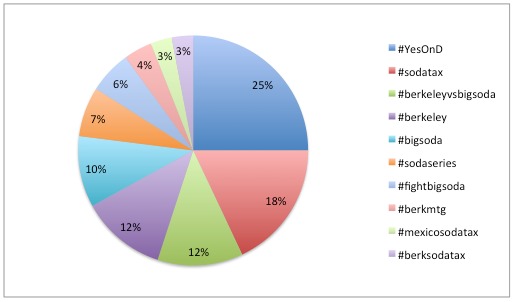
Share On Social!
Soda taxes are a big part of the news in recent years, as Berkeley was the first city in the nation to pass a sugary beverage tax in 2014, obtaining 76% of the vote.
A new case study by JSI and partner Berkeley Media Studies Group (BMSG), has come out that analyzes the steps that were taken by advocates to market the campaign through social media, and marketing efforts, in hopes for advocates of other cities to learn from the efforts of both city’s campaigns and work toward new soda taxes in other cities around the nation.
The case study suggests the grassroots movement used social media as one of the main assets to reach public health advocates and also analyzes the different pro-tax arguments used in campaign posts to help suggest how advocates can best utilize social media to support sugary drink tax efforts.
The study started a year after the tax went into effect, and shows the pro-tax arguments vs. the Anti-tax arguments in all the generation of arguments use in campaigns in Berkeley and in San Francisco, following hashtags that related to campaigns. The study found:
- Pro-tax campaigns were more engaged on social media vs. anti-tax campaigns
- Most of anti-tax posts (80%) came from anti-tax campaign’s from the campaign’s account @Berkeleybevtax
- 478 pro-tax twitter accounts were in favor and tweeted for the tax
- Pro-soda tax campaigns in both cities reported the soda industries high expenses of $1.4 Million to fight the Berkley tax
San Francisco and Berkeley both used health-related arguments towards making the case for soda taxes, however oral health was not part of the argument for the sugary beverage taxes. Most health issues discussed were related to obesity and diabetes.
The study revealed a report of the various coverage on news media and social media accounts and the differences between Berkeley and San Francisco’s campaign efforts. Spanish language TV and radio was included but the case study revealed these channels were very limited in coverage and did not relate any anti-tax movement with funding by the soda industry.
Twitonomy and Facebook analytics along with Crimson Hexagon helped examine the tweets and Facebook posts related by hashtags and key words to both city’s campaigns. Nexis news databases were searched with key words and analyzed as well as campaign materials, TV and Radio ads, websites and YouTube.
The work was funded in part by the Global Obesity Prevention Center at Johns Hopkins University, the Voices for Healthy Kids program, a joint initiative of the Robert Wood Johnson Foundation and the American Heart Association, and the UC Berkeley Food Institute.
To read the full case study, click here.
To see the report, click here.
To learn more about why it is important that Latino kids should consume less sugary drinks, click here.
Explore More:
Healthy Families & SchoolsBy The Numbers
142
Percent
Expected rise in Latino cancer cases in coming years



